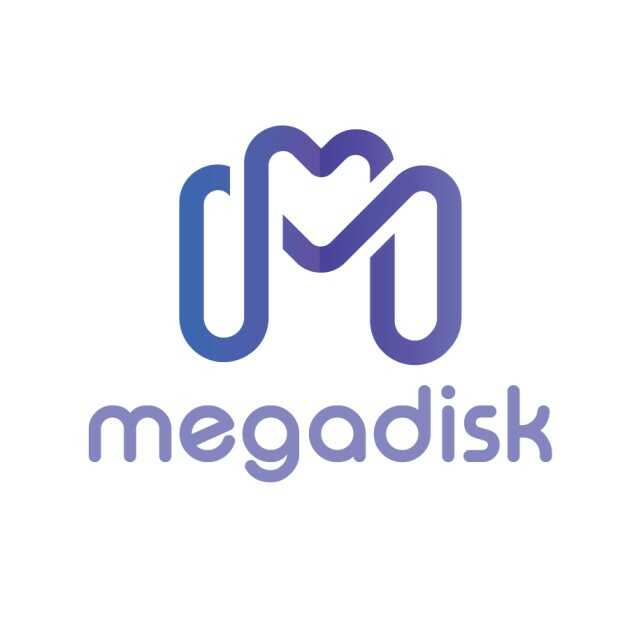Description

Megadisk

Qumulo
Comprehensive Overview: Megadisk vs Qumulo
Here's a comprehensive overview of Megadisk and Qumulo:
Megadisk
a) Primary Functions and Target Markets
- Primary Functions: Megadisk is typically a software-based storage solution known for offering scalable storage options. It often provides high-capacity storage aimed at handling large volumes of data efficiently, with features focusing on data management, retrieval, backup, and archiving.
- Target Markets: Megadisk primarily targets enterprise-level users and large businesses requiring substantial storage capacities, including sectors like healthcare, finance, and media industries demanding vast data management capabilities.
Qumulo
a) Primary Functions and Target Markets
- Primary Functions: Qumulo is known for its high-performance file storage solutions that provide real-time data analytics. It focuses on hybrid cloud and on-premise storage solutions with features that help organizations manage petabyte levels of data.
- Target Markets: Qumulo targets industries with large-scale data needs such as media and entertainment, life sciences, and research institutions. It is particularly appealing to organizations looking for scalable and efficient data management systems with real-time analytics.
Comparison in Terms of Market Share and User Base
b)
- Market Share: While specific market share data may fluctuate, Qumulo is generally considered a leading player in the file storage market due to its innovative solutions and strong client base across various industries. Megadisk, on the other hand, might have a more niche presence, catering to specific high-capacity needs within enterprise environments.
- User Base: Qumulo has built a significant user base due to its robust cloud integration and real-time analytics capabilities. Its appeal is strong among dynamic industries with intensive data processing and analytics demands. Megadisk might be more popular with enterprises focused primarily on extensive storage capacity, rather than comprehensive analytics or hybrid solutions.
Key Differentiating Factors
c)
-
Technology and Innovation:
- Qumulo: Stands out for its advanced analytics and ability to provide insights into data utilization and performance in real-time, which is a key differentiator. Its hybrid storage capabilities also make it adaptable for businesses utilizing both cloud and on-premises solutions.
- Megadisk: Focuses primarily on providing large-scale storage capacities without as strong an emphasis on analytics or cloud integration, differentiating it as a more straightforward storage solution.
-
Scalability and Flexibility:
- Qumulo: Offers exceptional scalability with a focus on easily expanding storage limits and managing data efficiently in hybrid environments. This flexibility appeals to customers requiring adaptable solutions.
- Megadisk: While scalable, its flexibility might be more limited to capacity rather than functionality or integration, making it less versatile for hybrid cloud setups.
-
Industry Focus and Expertise:
- Qumulo: Has a pronounced presence in data-intensive fields and enjoys a reputation for specializing in delivering storage solutions that are well-integrated with analytics and data insight tools.
- Megadisk: Likely appeals mainly to sectors primarily concerned with storage capacity and data archiving, offering a different value proposition from Qumulo’s feature-rich approach.
In summary, while both Megadisk and Qumulo serve the primary function of data storage, Qumulo’s inclusion of analytics and hybrid solutions along with its broader industry focus distinguishes it within the market.
Contact Info

Year founded :
2023
Not Available
Not Available
Estonia
http://www.linkedin.com/company/megadisk

Year founded :
2012
+1 206-260-3588
Not Available
United States
http://www.linkedin.com/company/qumulo
Feature Similarity Breakdown: Megadisk, Qumulo
As of my last update, Megadisk and Qumulo are both involved in the realm of data storage, though specific details about "Megadisk" as a company or product are not widely recognized in the industry. If "Megadisk" refers to a particular storage or data management solution, I’ll provide a general comparison of typical features found in data storage solutions like those Qumulo offers. Please verify the latest product information directly from the sources for any new developments.
a) Core Features in Common
- Scalability: Both would likely offer scalability options, allowing for the expansion of storage resources as an organization's needs grow.
- Data Management: Both solutions probably include data management capabilities, such as data archiving, retrieval, and tiering.
- High Availability: They likely have features ensuring high availability of data, crucial for enterprise-level reliability.
- Performance Optimization: Capabilities to optimize performance by balancing workloads and efficiently managing data transfers.
- Security: Both solutions would include security features such as encryption and access controls to protect data integrity and privacy.
- Snapshots and Data Recovery: Features for data protection through snapshots and disaster recovery tools.
- Software Integration: Integration capabilities with existing IT environments, including compatibility with different operating systems and virtualization platforms.
b) User Interface Comparison
Without specific UI details on "Megadisk," general comparisons can be outlined:
-
Qumulo: Known for its intuitive and user-friendly management console, Qumulo provides detailed real-time analytics and insights into data usage and performance. The web-based interface is designed to be simple and efficient, helping users to easily manage and monitor storage resources.
-
General UI Factors: A storage solution like Megadisk, if similar to Qumulo, should provide a user-friendly dashboard with real-time data visibility, simple navigation, and accessible management features. Any difference could come from design preferences, the complexity of configuration options, and usability tailored to specific user needs.
c) Unique Features
-
Qumulo:
- Real-time Analytics: Offers robust, real-time analytics to monitor and manage storage usage and efficiency.
- Data Aware Scale: Known for being data-aware, which helps in better data management and storage efficiency.
- Cloud-Native Integration: Strong focus on cloud compatibility, allowing seamless integration with hybrid cloud environments.
-
Megadisk: If details are provided, unique features could include specific proprietary technologies, special storage algorithms, or specialized integration capabilities with certain applications or environments.
For accurate, up-to-date comparisons, especially for a product like "Megadisk" where public information might be limited, engaging with their official resources or product documentation would be essential for a thorough analysis.
Features

Not Available

Not Available
Best Fit Use Cases: Megadisk, Qumulo
Megadisk and Qumulo are both data storage solutions designed to address different needs and priorities. Here's a breakdown of their best-fit use cases, including the types of businesses or projects they cater to and how they cater to different industry verticals or company sizes:
Megadisk
a) For what types of businesses or projects is Megadisk the best choice?
Megadisk is typically suited for businesses or projects that require:
-
Cost-effective Storage: Smaller companies or startups that need affordable storage solutions without sacrificing performance.
-
Ease of Use: Organizations that prioritize user-friendly interfaces and setups, possibly because of limited IT staff or expertise.
-
General-purpose Storage Needs: Businesses or projects that require basic storage functionalities and straightforward file systems with moderate scalability needs.
-
SMBs and Enterprises: Ideal for small to medium-sized businesses (SMBs) and enterprises looking for a balance of cost, performance, and scalability.
-
Backup and Archiving: Companies focusing on data backup and archiving, where large-scale, high-performance data handling is not critical.
Qumulo
b) In what scenarios would Qumulo be the preferred option?
Qumulo is preferred for scenarios involving:
-
High-performance File Data Management: Enterprises needing high-performance storage solutions that manage file-based data efficiently.
-
Data-heavy Applications: Organizations with data-heavy workloads, such as media and entertainment, healthcare, and research facilities that rely on fast access and processing of significant amounts of data.
-
Large-scale, Scalable Architecture: Businesses that require extensive scalability and reliability to manage massive amounts of unstructured data without compromising on performance.
-
Advanced Data Analytics: Enterprises focusing on big data analytics requiring quick and real-time insights from their data.
-
Cloud Integration: Companies seeking seamless integration with cloud systems for hybrid or cloud-native applications.
Catering to Different Industry Verticals or Company Sizes
-
Industry Verticals:
- Megadisk is beneficial for industries that do not operate with extreme data throughput demands but require reliable data storage at a reasonable price. Typical industries might include accounting, legal, or small creative agencies.
- Qumulo caters to industries that generate large volumes of data and require high-speed access to this data. These include media and entertainment (for video editing and visual effects), scientific research (for complex data modeling), and healthcare (for handling medical imaging and patient data).
-
Company Sizes:
- Megadisk often aligns well with SMBs due to its cost-effectiveness and simplicity. It's often chosen by companies looking to make efficient use of their budget without unnecessary complexity.
- Qumulo tends to be favored by larger enterprises or mid-sized companies projecting rapid growth, as its features are built to handle large-scale data environments and dynamic scaling needs.
In summary, the choice between Megadisk and Qumulo often comes down to the specific requirements regarding performance, scalability, budget, and industry demands. Understanding these differences is crucial for businesses seeking to maximize the alignment of their storage infrastructure with their strategic objectives.
Pricing

Pricing Not Available

Pricing Not Available
Metrics History
Metrics History
Comparing teamSize across companies
Conclusion & Final Verdict: Megadisk vs Qumulo
To provide a conclusion and final verdict between Megadisk and Qumulo, it's important to evaluate them across several dimensions, including performance, scalability, ease of use, cost, support, and specific use-case alignment.
a) Best Overall Value
Qumulo generally offers the best overall value, particularly for organizations that prioritize scalability, advanced data management capabilities, and superior customer support. It excels in handling large-scale operations with dynamic workloads, making it suitable for enterprises with extensive data requirements.
b) Pros and Cons
Megadisk
-
Pros:
- Cost-effective: Typically offers a lower upfront cost, which can be appealing for startups or smaller organizations.
- Simplicity: Often easier to deploy with straightforward features that cater to less complex environments.
- Adequate for Smaller Scale Uses: Fits well in environments with smaller data storage needs or less demanding performance criteria.
-
Cons:
- Limited Scalability: May struggle to scale efficiently in environments that experience substantial data growth.
- Basic Features: Lacks some advanced functionalities that enterprises might need for specific data operations.
- Restricted Integration Capabilities: Potentially less flexible in integrating with diverse IT ecosystems.
Qumulo
-
Pros:
- Scalability: Built to efficiently manage growing data volumes, making it ideal for larger enterprises.
- Advanced Data Management: Offers robust features for real-time analytics, data indexing, and efficient data usage.
- Excellent Support and Community: Well-regarded for customer service and has a supportive user community.
-
Cons:
- Higher Cost: The sophisticated feature set and scalability come at a premium, which might not justify the cost for smaller organizations.
- Complexity: The range of features might introduce complexity in administration for users unfamiliar with advanced systems.
- Learning Curve: In-depth training may be required to fully utilize Qumulo's capabilities, especially for smaller teams.
c) Recommendations for Users
-
For Small to Mid-Sized Businesses: If your organization's data storage needs are modest, and budget constraints are a significant consideration, Megadisk could fulfill your requirements effectively without unnecessary complexity or cost.
-
For Large Enterprises or Rapidly Growing Organizations: Qumulo is the better choice owing to its ability to handle large datasets and provide real-time data insights. Its scalability and comprehensive feature set will support extensive IT environments and evolving data needs.
-
Mixed Use Cases: If your organizations foresee scalability needs and have the potential for expansion, but currently operate on a limited budget, consider starting with Megadisk with the option of transitioning to Qumulo as needs grow.
-
Decision Based on Priorities: Carefully assess the importance of factors such as cost, scalability, and feature set relative to your strategic goals. Engaging with product trials or consulting with both vendors can provide deeper insight into which product aligns best with your specific operational needs.
Ultimately, the decision between Megadisk and Qumulo hinges on evaluating current requirements and future projections, considering the balance between immediate cost-effectiveness and long-term strategic capability.
Add to compare
Add similar companies



